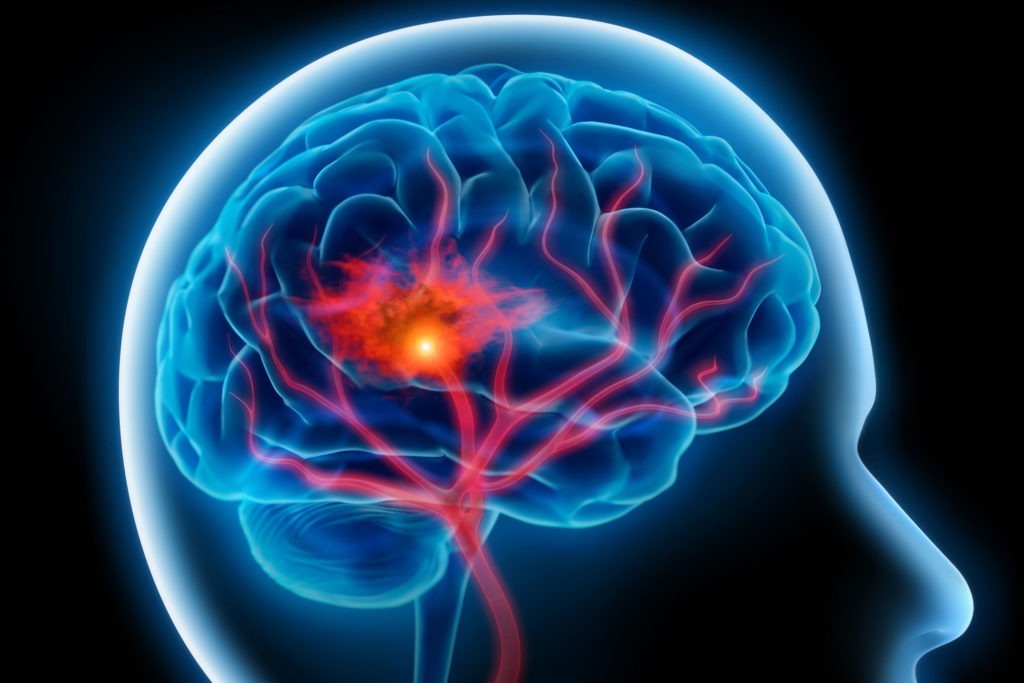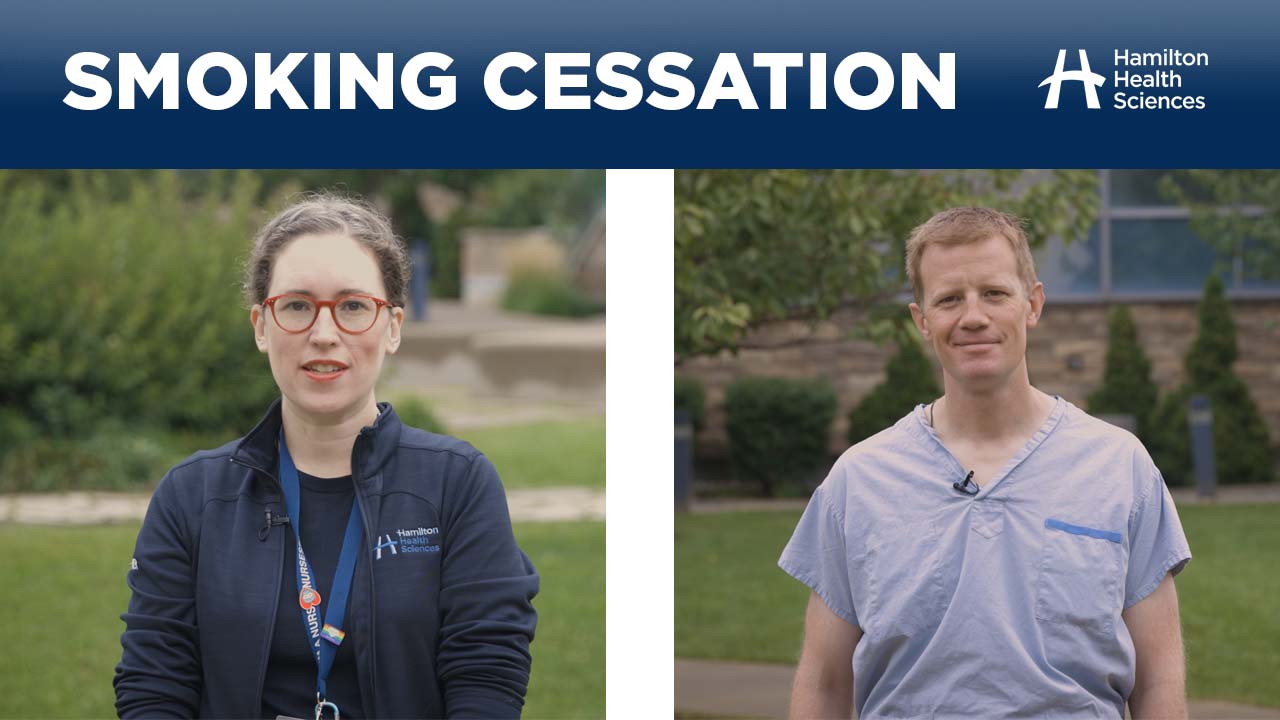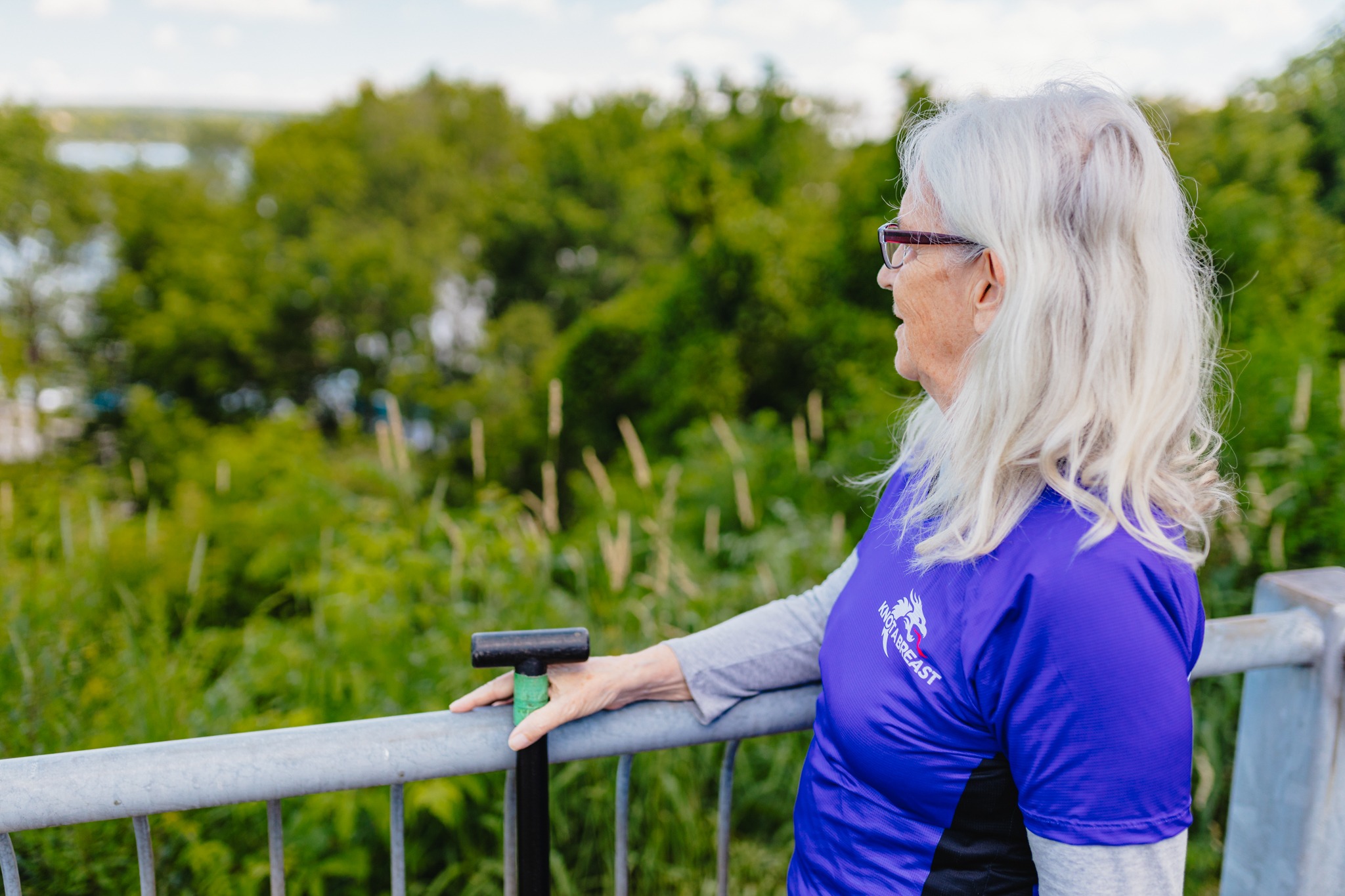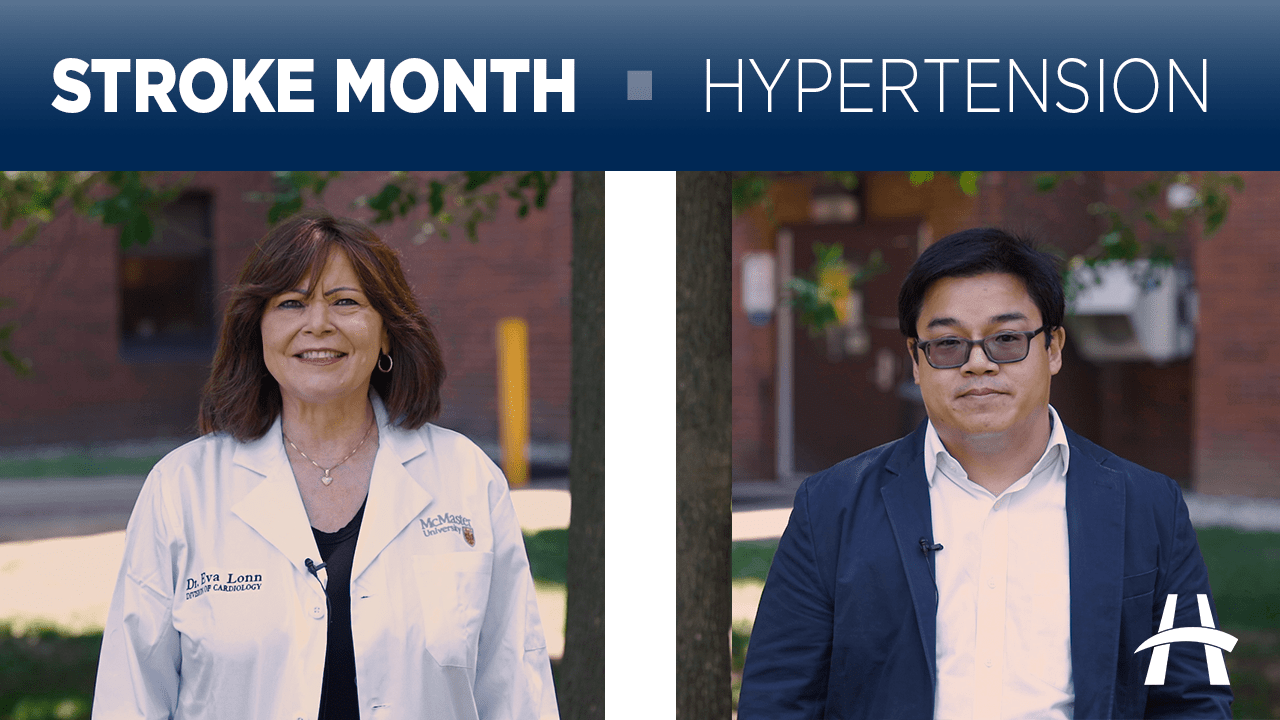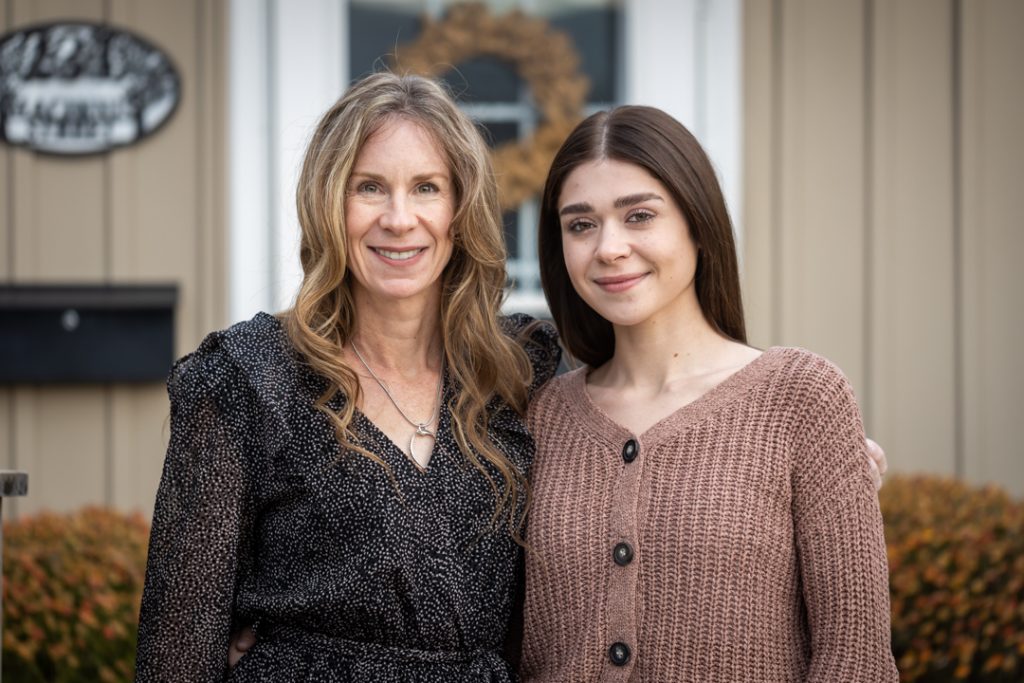
Stroke patient urges others to remember “FAST” assessment
October 20 started out as a normal day for Hamilton Health Sciences (HHS) patient Amber Chrastina. The administrative assistant from Welland began the morning at her local pool, swimming lengths before work.
“My goal was to swim across Lake Erie in 2022,” says Chrastina, 46, who had just started her training regimen a couple of weeks earlier. An avid runner and walker, the lake swim was her most ambitious fitness goal ever, and she looked forward to the challenge.
“I was becoming increasing convinced that something was very wrong.”
That morning’s training swim went well and from the pool Chrastina drove to work, where she soon began to suspect that something was wrong with her left side. “I made a coffee, then spilled it all over my desk and keyboard,” recalls Chrastina. “I can be a little bit clumsy, but I don’t usually spill an entire cup of coffee.”
Next, she tried watering a small potted plant on her window sill. “I picked it up with my left hand and dropped it, smashing the pot. There was soil everywhere.”
Chrastina cleaned up the soil, dried off her keyboard and tried to get on with her day but found she had trouble typing. Thinking the coffee spill may have damaged her keyboard, she decided to pick up another one from the IT department. But carrying the keyboard in her left hand, she dropped it.
“It was the third time I dropped something that day. I was becoming increasing convinced that something was very wrong,” says Chrastina, who also felt that she was slurring her words. “No one at work commented on my speech being any different, so I assumed I wasn’t showing any concerning signs.”
Think FAST
Still not convinced everything was ok, Chrastina turned her phone’s video to selfie mode and took the FAST assessment to check for signs of stroke:
Face – Is it drooping?
Arms – Can you raise both?
Speech – Is it slurred or jumbled”
Time – Call 911 right away
“I knew about FAST from first aid training,” she says.
A stroke happens when blood stops flowing to any part of the brain, damaging brain cells. FAST signs are the most common indicators. The goal is to act FAST, because the quicker you act, the more of the person you save, says Heart and Stroke Canada.
Using her phone’s video, Chrastina could see that her face wasn’t drooping. She could also raise her arms without any difficulty. She assumed her speech was fine too, since no one had mentioned it.
Trust your instincts
“It’s extremely important to call 911 if a stroke is suspected, even for people who pass the FAST assessment,” says HHS stroke specialist, Dr. Kelvin Ng.
“…Remember the ‘T’ in FAST and call 911.”
Other less common signs of stroke can include blurred or double vision, a sudden severe headache usually accompanied by some of the other signs, numbness typically on one side of the body and problems with balance. Paramedic crews are trained to recognize the signs. If involved early on, paramedics will quickly bring patients to the appropriate stroke center for emergency assessment and treatment.
“Signs of stroke may not be obvious, and it’s not always possible for patients to identify a stroke in themselves,” says Ng. “If your instincts tell you that something could be wrong, remember the ‘T’ in FAST and call 911.”
Young heroes
Because Chrastina passed the FAST assessment, she opted to visit an after-hours clinic to get checked out. But first, she stopped off at home. “I walked into my house and my son Aaran, who’s 12, noticed right away that something was wrong with me. He said I didn’t look right or sound right.”
“Amber’s children are heroes for recognizing that their mother needed immediate medical attention.”
Her daughter Rayna, 19, was also very concerned and realized that her mother needed to get to their local emergency department right away.
“Amber’s children are heroes for recognizing that their mother needed immediate medical attention,” says Ng.
Chrastina was transferred to HHS Hamilton General Hospital (HGH), where she received emergency surgery. HHS is a provincial and national leader in stroke care, with HGH serving as the Regional Stroke Centre for central south Ontario.
She’s now recovering at home, including rehabilitation to regain mobility in her left hand. Training for the lake swim is on pause. “I’m not sure if I’ll continue with that,” says Chrastina. “I’d like to, but I need to give myself some time to recover and think more about it.”
Chrastina decided to share her experience as a reminder to others about the the FAST assessment and other signs of a stroke.
“Don’t take symptoms lightly,” says Chrastina. “A person’s best chance for survival, and having quality of life, is to act fast.”

